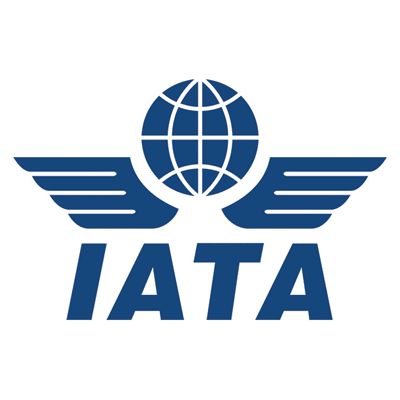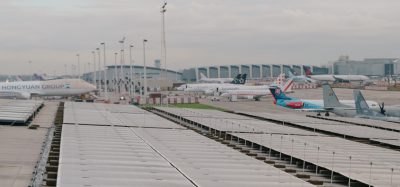Using global standards to boost connectivity in Latin America
- Like
- Digg
- Del
- Tumblr
- VKontakte
- Buffer
- Love This
- Odnoklassniki
- Meneame
- Blogger
- Amazon
- Yahoo Mail
- Gmail
- AOL
- Newsvine
- HackerNews
- Evernote
- MySpace
- Mail.ru
- Viadeo
- Line
- Comments
- Yummly
- SMS
- Viber
- Telegram
- Subscribe
- Skype
- Facebook Messenger
- Kakao
- LiveJournal
- Yammer
- Edgar
- Fintel
- Mix
- Instapaper
- Copy Link
Posted: 14 November 2013 | International Air Transport Association | No comments yet
IATA reinforced its call for governments to adopt and adhere to global standards and recommended practices…


The International Air Transport Association (IATA) reinforced its call for governments to adopt and adhere to global standards and recommended practices in order to enable a safe, efficient and sustainable air transport system. Speaking at the Latin American and Caribbean Air Transport Association (ALTA) Airline Leaders Forum in Cancun, Tony Tyler, IATA Director General and CEO cautioned that many governments in the Latin American/Caribbean region may be inadvertently undermining the connectivity provided by global aviation through a patchwork of non-standard rules and regulations.“Global standards underpin a safe, secure, and integrated global air transport system. A passenger can buy a single ticket, pay for it in a single currency and expect the ticket to be recognized by any of the team of airlines that will get him to his destination. The system is so reliable that we don’t often think about the enormous coordination that makes it possible. Unfortunately, some governments—particularly across Latin America—do not appreciate the value of such standards. As a result, this region is at risk of falling behind in terms of global connectivity,” said Tyler.
Safety is an example of what can be achieved through a globally harmonized approach. “Global standards were crucial to transforming air travel from a high risk adventure to a routine part of daily life. And when it comes to operational safety management, the IATA Operational Safety Audit (IOSA) is the gold standard. Over the 10 years since IOSA was created it is clear that carriers on the registry perform better than those that are not. For example, ALTA and IATA member carriers in the region that are on the IOSA registry have not experienced a fatality in six years,” said Tyler.
Commercial Regulation
IATA encourages governments to apply the template established for safety to other areas of aviation activity. “Global standards are not just about safety or for technical situations. Consistent application of global standards in the regulatory world can add tremendous value. Unfortunately, some governments are weakening the integrity of the air transport system by introducing a patchwork quilt of different and sometimes conflicting passenger rights regulations. At least 60 governments have introduced such rules, including 11 in Latin America,” said Tyler.
The Latin American approach to passenger rights has been among the most prescriptive, with proposed compensation among the highest in the world:
- A proposal in Mexico would increase compensation for cancellations to 300% of the ticket price, with compensation of US$1,500 for extended delays on long-haul flights.
- In Chile, a delay of just a few minutes could potentially trigger hundreds of dollars in per-passenger compensation according to one proposal.
“Regulations to help passengers shouldn’t confuse them with rules that don’t fit together in a global system or overwhelm them with complexity. And often regulation comes with unintended consequences. Even if the jurisdiction is clear, what needs to be done is not. All of this gets in the way of delivering good customer service—and surely that is not what governments intended!” said Tyler.
At the 38th Assembly of the International Civil Aviation Organization (ICAO), Member States agreed there is a need for high-level, non-prescriptive principles that are consistent with international agreements and that strike a balance between protecting passengers and maintaining industry competitiveness. IATA supports those conclusions and agrees with the need for greater convergence and compatibility. In June, the IATA membership unanimously agreed to core principles for consumer protection.
Taxation
“Believe it or not, there are also global standards and recommended practices for fees and taxes. Unfortunately, many governments do not follow them. This seems to be a particular problem in Latin America,” said Tyler.
A fuel tax recently passed by the Mexican Senate that will add an estimated 480 million pesos to airlines’ fuel bills every year is the latest example of a tax applied in contravention of ICAO standards and recommended practices, and the Chicago Convention. Bolivia, Chile, Ecuador and the Dominican Republic also apply similarly misguided fuel taxes on international aviation.
“The issue of taxes and charges in Latin America transcends the formal breaches of global standards and recommended practices. The simple truth is that Latin America is a very expensive place for airlines to do business. On average, fuel expense is around 14% higher than the world average. Brazil is more extreme at 17% above the global average,” said Tyler.
“We face another sort of challenge in Venezuela, where $2.6 billion in airline funds remain blocked by the government and subject to the threat of drastic devaluation. I am hopeful that the government will recognize the vital role aviation plays in the country’s economy and devise a solution to this unacceptable, and frankly, unfair situation before the country’s connectivity is affected,” said Tyler.
Infrastructure
Owing to years of under-investment in infrastructure many Latin American airports are at or significantly over capacity. These include airports in Bogota, Brasilia, Lima, Mexico City and Sao Paulo. Addressing the situation will take several years. In the interim capacity will have to be managed.
“The IATA Worldwide Slot Guidelines (WSG) are the industry standard used to manage runway capacity at 165 slot constrained airports. We’ve seen a number of governments in Latin America tinkering with slot regulations in the misguided hope of extracting additional capacity from congested airport infrastructure. And because slot-constrained airports around the world apply the WSG, any local proposals that deviate from them have a major negative impact on airline operations and schedule planning globally,” said Tyler.
Environment
The recent ICAO Assembly to introduce a global market-based measure (MBM) to help manage aviation’s CO2 emissions from 2020 is a powerful example of what can be achieved when governments act in the collective best interest of all.
“The ICAO Assembly reached an historic agreement that will set the industry on the path to achieving its target of Carbon Neutral Growth from 2020 (CNG2020). Unfortunately, the European Commission has chosen basically to ignore the work at ICAO and include the portion of international flights within European airspace in its Emissions Trading Scheme from January next year. Governments will need to sort this out. And we call on them—particularly European governments—to keep the global and long-term view that underpinned the success at ICAO. The big prize is a global agreement to manage aviation’s emissions post-2020. That must be the focus of all our efforts,” said Tyler.
Related topics
Related organisations
International Air Transport Association (IATA), International Civil Aviation Organization (ICAO)

















